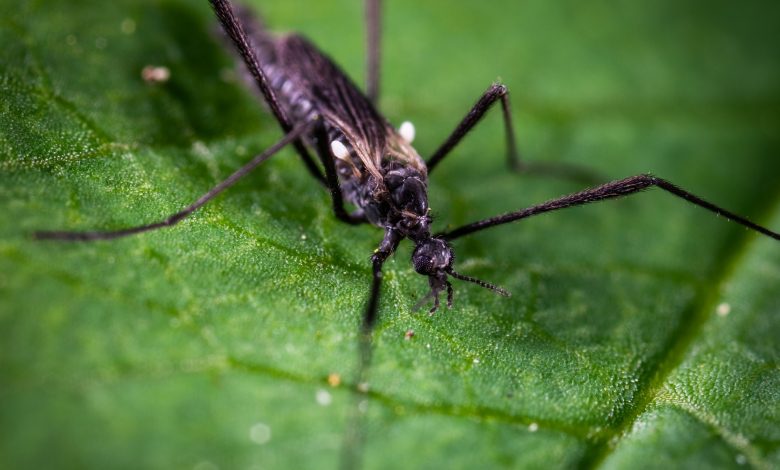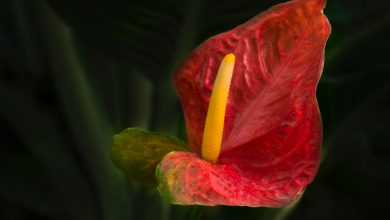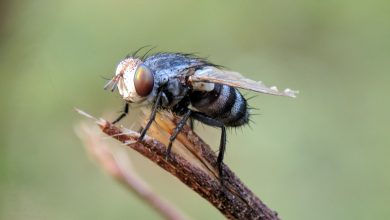Mosquito Repelling Plants

Mosquitoes are no fun at all. They’re a relentless species with the bad habit of ruining a simple evening outdoor relaxation routine. Even worse, the insect exposes one to the dangers of suffering from malaria. Surely you’d love to banish them from your environment, and thankfully, you can.
Through mosquito repelling plants, you can naturally keep these pesky creatures away from the reach of your skin. What’s more, you won’t have to use chemical sprays, which also come with their downsides, to ward them off. So beautify your garden with some of these mosquito-repelling plants while you have the sort of evening relaxation you’ve always wanted.
Let’s take a look at ten of them.
1. Citronella Grass
Citronella grass has its origin in the tropical regions of Asia and has need for constant water and indirect light supply. Planters in warmer regions can grow this grass as a perennial, while in colder climates, gardeners may grow the grass annually.
Besides being a mosquito-repelling grass, it also does the work of soothing your migraines and lessening your fever. However, the grass doesn’t have the superpower to repel mosquitoes by merely occupying some space in your garden. You’d have to squeeze out the oil from the grass blades, and then apply it on your skin to repulse the disturbing insects.
Unfortunately, there are so many plants masquerading as citronella grass asides the true varieties, which are Cymbopogon nardus or Citronella winterianus. These usurpers smell like the true citronella. However, they don’t contain the valuable oil deterring the mosquitoes.
2. Lavender
Lavender has its origin in the Mediterranean region and southeast regions of India. Not only does it repel mosquitoes, but it also stands pretty in your garden. The purple color flower turns heads due to its fragrance and is quite significant for its oil.
The plant solves an array of health issues ranging from anxiety, nausea, skin irritation, cancer, headaches to toothaches. Its botanical name is Lavandula angustifolia. This shrubby plant is also very effective at warding off rabbits and deer.
It’s more favorable to cultivate this perennial in the spring than during the fall. Moreover, avoid planting lavender in a wet and moist area, as such a condition is adverse for its root and may lead to root rot. The purple flower only requires direct sunlight.
The essential oil in the plant contains Linalool, which is the reason why mosquitoes can’t stand its sight, while on the other hand, humans can’t get enough of its fragrance.

3. Petunias
It isn’t called nature’s pesticide for nothing. After all, it’s an undeniable terror for squash bugs, leafhoppers, tomato hornworm, aphids, and asparagus beetles.
Petunias are such a delight to see in any landscape, given their bright colors and shape. What’s more, you can grow these attractive flowers annually, although gardeners in zone nine to eleven grow them as perennials.
Petunias require direct sunlight to bloom and are suitable for any soil type. Unlike Citronella, it doesn’t thirst remarkably for water. Hence, it doesn’t require wet soil or daily routines of watering.
You can have lovely petunias during summer, fall, and spring.
4. Rosemary
Scientists call it Rosmarinus officinalis. The needle-shaped plant is a member of the mint family, Lamiaceae. It gives off a piney aroma and possesses essential oil, which effortlessly repels annoying mosquitoes, cabbage moths, and carrot flies.
Talk about killing two birds with a stone; gardeners can use this plant to season their dishes while it also serves beautification purposes on their landscapes. Moreover, it’s useful for aiding digestion and improving brain aging.
Caring for this perennial plant is a walk in the garden (not park this time). It requires about eight hours of exposure to the sun. It’s more suited for sandy soil, as it doesn’t even need a wet area to thrive. Avoid planting this evergreen shrub in a cold environment since it flourishes in warm and humid regions. Consider housing them in a container so that when winter finally comes, you carry the plant indoor to continue repelling those mosquitoes.
5. Marigold
From its lovely colors of gold, copper, and brass, you can tell that marigold is no boring annual to have in your garden during summer. Tagetes erecta is the tallest of its species. In contrast, French marigold is usually smaller and more extensive.
The beautiful annual flourishes under the warmth of full sunshine and can tolerate remarkably hot summers. Marigolds can also serve as valuable companion plants in your garden, as they also repel worms that attack your tomatoes, onions, and squash beans.
This plant is very easy to grow and needs well drained soil to thrive. The fragrance and the oil it possesses are what drive the mosquitoes away and give you a lovely evening. More so, if you want butterflies and bees in your garden, there’s no better plant to trust to entice them than marigolds.
6. Catnip
Famous for its stimulating effect on cats, this perennial herb is native to Europe, Asia, and Africa. Catnip plants, otherwise known as Nepeta cataria, belong to the mint family and contain Nepetalactone, which is the intrinsic odor behind warding off mosquitoes. All you have to do is extract the oil in the leaves and stems and rub them on your skin.
Also, consider shredding some of its leaves for your feline playmate so they get a kick out of its stimulant while keeping the plant away from their reach.
Catnip makes excellent hydroponic gardens, although you can plant them in any soil. Nonetheless, a well-drained soil is the best. They also make great companion plants, and prevent flea beetles, Japanese beetles, squash bugs, and rats from having a tour of your precious garden.
Like the other mosquito-repelling plants mentioned above, catnip also provides health benefits to humans, including anxiety reduction, soothing the nerves, treating stomach upset, and headaches. More so, it tackles fever, diarrhea, and cough effectively.
7. Garlic
At this point, it’s logical to wonder if there’s any purpose garlic doesn’t naturally serve. This odorous vegetable does more than adding spice to your food; it serves as a deterrent to both wriggling and flying insects. Perhaps, like you, those annoying insects don’t find its smell conducive, so they take off upon inhalation.
All you have to do is crush, blend or chop your garlic bulbs to obtain its amino acid. Consuming a decent amount of garlic would help you deter mosquitoes due to the smell you emit and the compound you give off through your skin.
What’s more, mixing garlic with liquid to create a mosquito spray is also a likely victory over those pests.
8. Basil
The great basil makes a variety of delicious Italian cuisines. It belongs to the Lamiaceae family and serves as everlasting misery to mosquitoes and their larvae, thanks to its pungent smell and essential oils. It’s best to plant the herb near stagnant water to emit a smell that’ll discourage mosquitoes from breeding around your vicinity.
Lime basil (Ocimum americanum) and holy basil (Ocimum sanctu) are most effective at deterring mosquitoes. Nonetheless, whichever basil you plant is an effective choice. Moreover, the herbs possess a long list of health benefits, such as stress and high sugar reduction, help with battling cancer, ensuring a healthy liver, prevent skin wrinkles, and reduce high blood pressure.

9. Peppermint
This hybrid mint is not only perfect for relieving headaches, menstrual cramps, and boosting your sleep, but it also falls into the class of mosquito-repelling plants. Its essential oils are good at repelling bloodsuckers from your skin and saving you the stress of damping yourself with chemical sprays.
This European and North American native herb, otherwise known as Mentha piperita, is also an effective bug repellant.
An added advantage to this plant is that its smell isn’t as harsh as some of the mosquito-repelling plants, thus you can be sure your kids would prefer this if they find the other natural repellents disturbing. The different species of peppermints have a varying degree of effect on mosquitoes.
To plant Mentha piperita, ensure your soil allows adequate drainage. Also, don’t expose the plant fully to full sunlight.
10. Eucalyptus
Belonging to the Myrtaceae family, Eucalyptus is a genus of at least seven hundred species of plants. They may appear as pygmyish shrubs or giant trees. You can find a vast species of Eucalyptus in Australia, while other countries may cultivate this plant since they grow speedily.
Because it contains eucalyptus, the plant acts as a natural deterrent to mosquitoes. If you suffer from other pest infestations besides mosquitoes, such as ticks, sandflies, and midges, you can count on Eucalyptus to help Moreover, the oil is also effective for treating head lice.
It also has a handful of health benefits, such as relieving cold symptoms, improving your dermal health, soothing the body, and keeping the teeth strong.
Comparing these natural mosquito repellents to chemical sprays makes you want to head straight to a garden store to order the seeds of these plants just so you enjoy the numerous benefits that come with beautifying your garden with them while excusing yourself and your garden from the side effects of mosquito insecticides.



